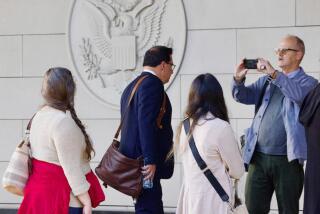Huizar seeks to gut corruption case, says alleged $1.5 million in gifts were not bribes
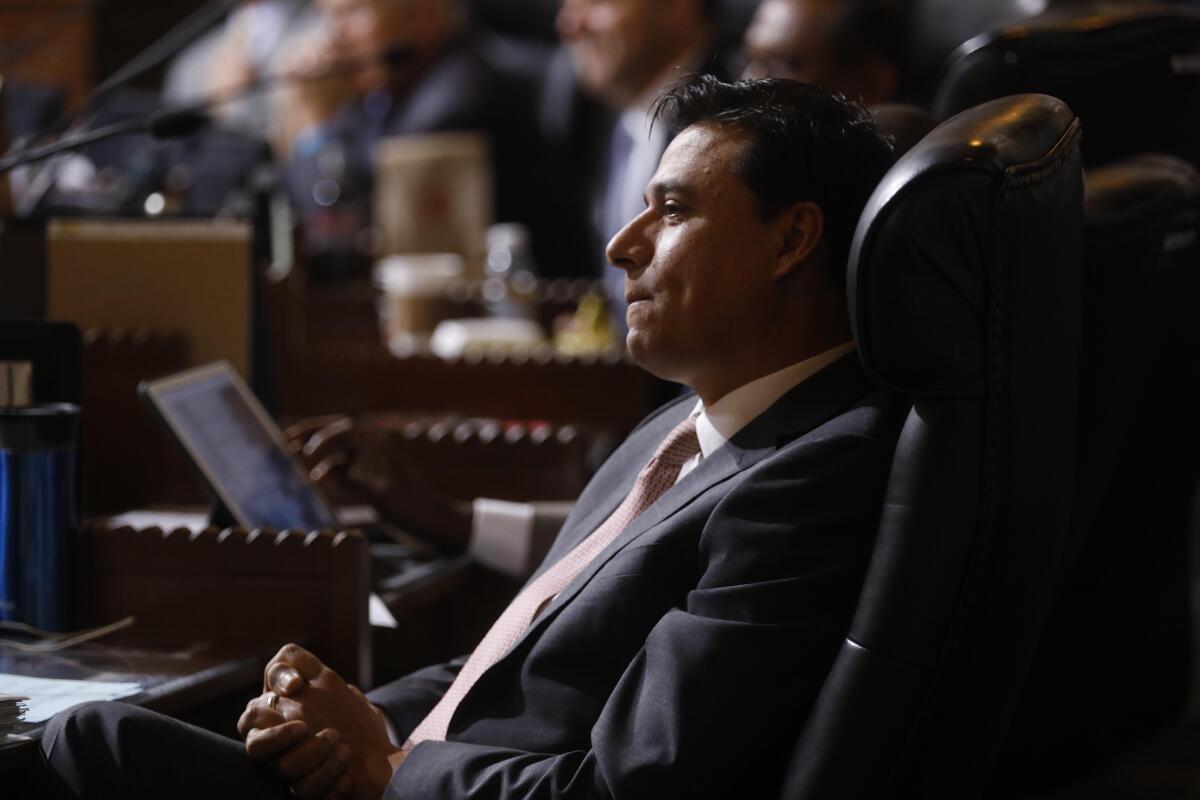
- Share via
Attorneys for Jose Huizar readily admit that many of the allegations made against the former Los Angeles city councilman in a wide-ranging corruption case are “distasteful.”
Federal prosecutors have accused him of traveling on private jets, staying at luxury hotels, gambling at casinos in Las Vegas and Australia and consorting with prostitutes — all paid for by businessmen seeking to profit from the real estate boom that was transforming his downtown district.
But in a recent court filing, Huizar’s lawyers argued that many of the steps he is accused of taking to help those businessmen, such as setting up meetings and recommending consultants, were too informal to qualify as the type of “official acts” that meet the definition of bribery under federal law.
His lawyers are calling on a judge to dismiss most of the charges, saying prosecutors have failed to meet strict standards set by the Supreme Court for public corruption cases.
The filing is Huizar’s most detailed defense yet against allegations that he ran a racketeering enterprise out of City Hall to enrich himself and his allies by shaking down developers. If U.S. District Judge John F. Walter grants his request to sharply scale back the 41-count indictment, it would effectively gut the prosecution’s case, leaving such charges as tax evasion and lying to the FBI.
So far, the federal corruption investigation has yielded guilty pleas from former City Councilman Mitchell Englander, former Huizar aide George Esparza, lobbyist Morrie Goldman, and real estate consultants Justin Kim and George Chiang.
Walter will hold a Nov. 15 hearing on the motion from Huizar and two co-defendants to dismiss much of the indictment.
Raymond Chan, a deputy mayor who oversaw economic development for L.A. Mayor Eric Garcetti in 2016 and 2017, has been charged with conspiracy, bribery and other crimes.
Prosecutors have urged the judge to keep the charges intact.
Huizar “got greedy, got brazen, got sloppy, and got caught,” Assistant U.S. Atty. Mack E. Jenkins and other prosecutors wrote in court papers filed this month. The former councilman’s conduct, they said, fits squarely within what the Supreme Court has deemed “criminal conduct that threatens the integrity and viability of our democracy.”
But Huizar’s legal team noted that the Supreme Court has steadily narrowed the scope of U.S. bribery laws over the last three decades.
The court has “expressly sought to rein in federal prosecutors bent on casting nets large enough to catch nearly anything state or local officials do, while assigning themselves the task of valiantly stepping in and selecting who should be charged and imprisoned,” they wrote.
The legal gambit relies heavily on the Supreme Court’s 2016 decision overturning the conviction of former Virginia Gov. Robert McDonnell.
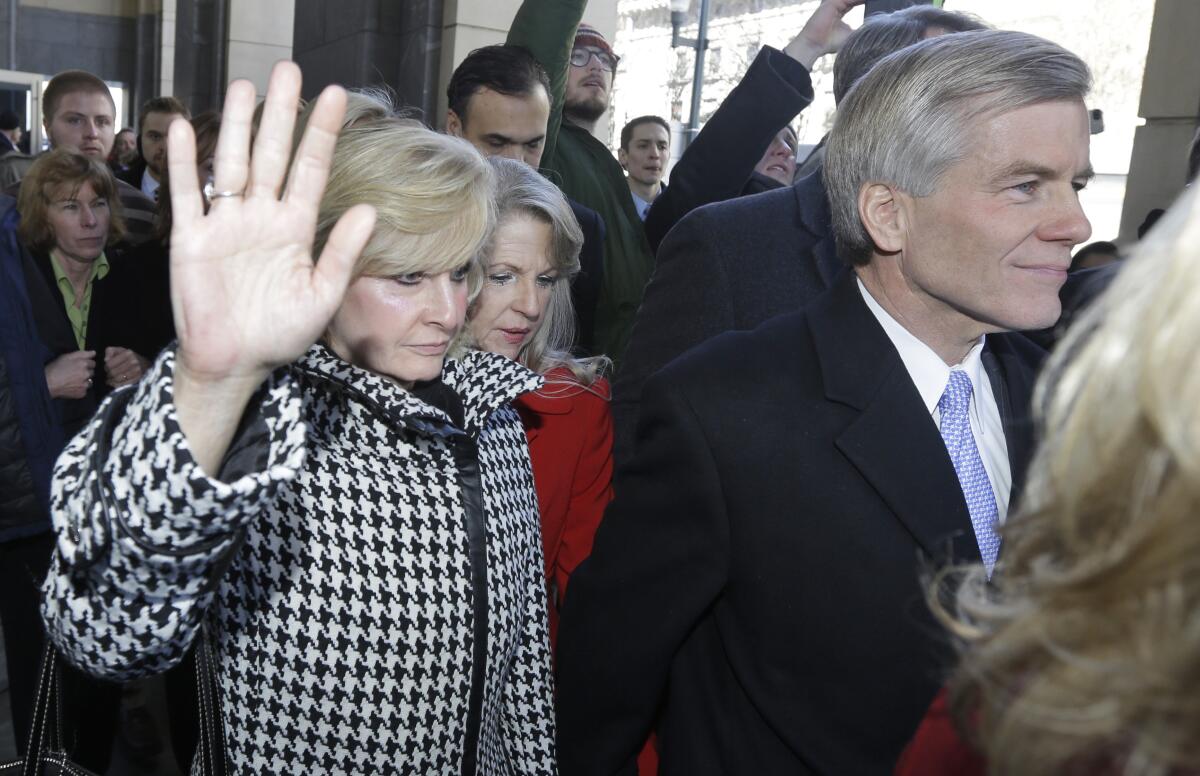
McDonnell and his wife, Maureen, accepted $175,000 in loans, gifts and other benefits from a Virginia businessman who wanted state universities to study a nutritional supplement he had developed. The court found McDonnell’s conduct, however “tawdry,” was not prohibited under federal bribery laws, because prosecutors failed to show he engaged in any “formal exercise of governmental power” to advance the businessman’s cause.
Setting up a meeting, talking to another public official or hosting an event — all of which McDonnell did for the businessman — does not amount to an “official act” performed in return for a bribe, the court ruled. Only a formal use of government power on a specific and focused matter, such as an agency decision or a lawsuit, can be the subject of a bribe, the court found.
In the Huizar case, his lawyers argued that lobbyists and others regularly “confer benefits” on public officials to “build a reservoir of goodwill that might ultimately affect one or more of a multitude of unspecified acts.”
“Naturally, those benefits are sometimes followed by favorable decisions, which in turn may be followed by more benefits and more favorable decisions,” they said. “While that may seem corrupt in the public mind, it is not under federal law.”
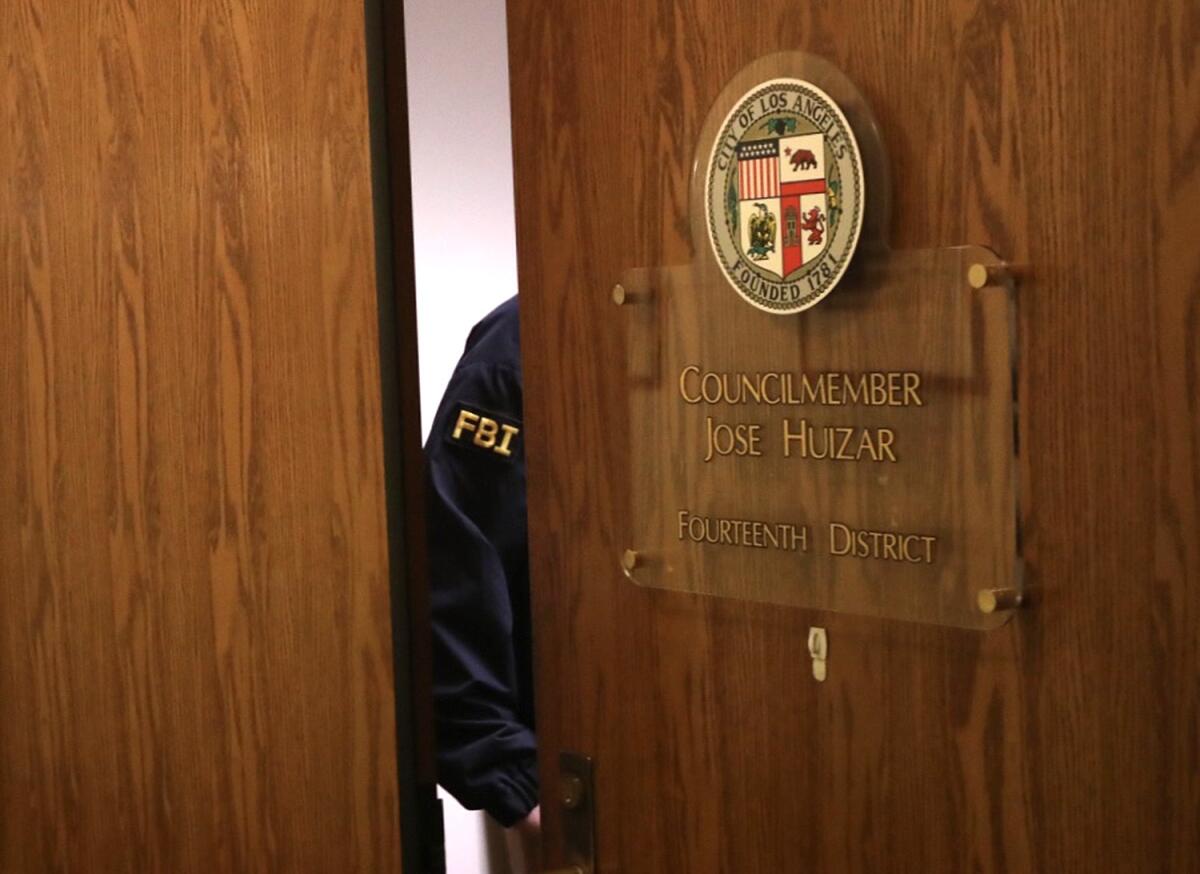
Huizar’s legal team, led by federal Public Defender Cuauhtémoc Ortega, described the former councilman as “an evangelist for robust development” and accused prosecutors of treating “virtually everything that Huizar did as an ‘official act’ no matter how informal or disconnected from government power.”
A case in point, Huizar’s attorneys said, is the allegation that their client accepted bribes from Wei Huang, a Chinese billionaire who sought to develop a 77-story skyscraper at 3rd and Figueroa streets.
Huang provided Huizar private jet flights, casino resort getaways and $600,000 in financial backing to help him settle a sexual harassment lawsuit filed by a former council aide, according to the indictment.
Huizar’s lawyers countered that such benefits would not constitute bribes since “remarkably little was flowing in the other direction.” Huizar never voted on the developer’s project, which has yet to come before the council.
Huang’s alleged requests of Huizar — setting up meetings, having conversations about the project, providing Huang with a list of land-use consultants — are “routine acts that elected officials undertake on behalf of constituents,” the lawyers wrote. None should be considered an “official act,” they said.
The Huizar lawyers also took aim at allegations by Esparza, the former aide, and Kim, the real estate consultant, that the former councilman demanded a $500,000 cash bribe from Dae Yong Lee, a real estate developer who won city approval to build a residential tower at Hill Street and Olympic Boulevard.
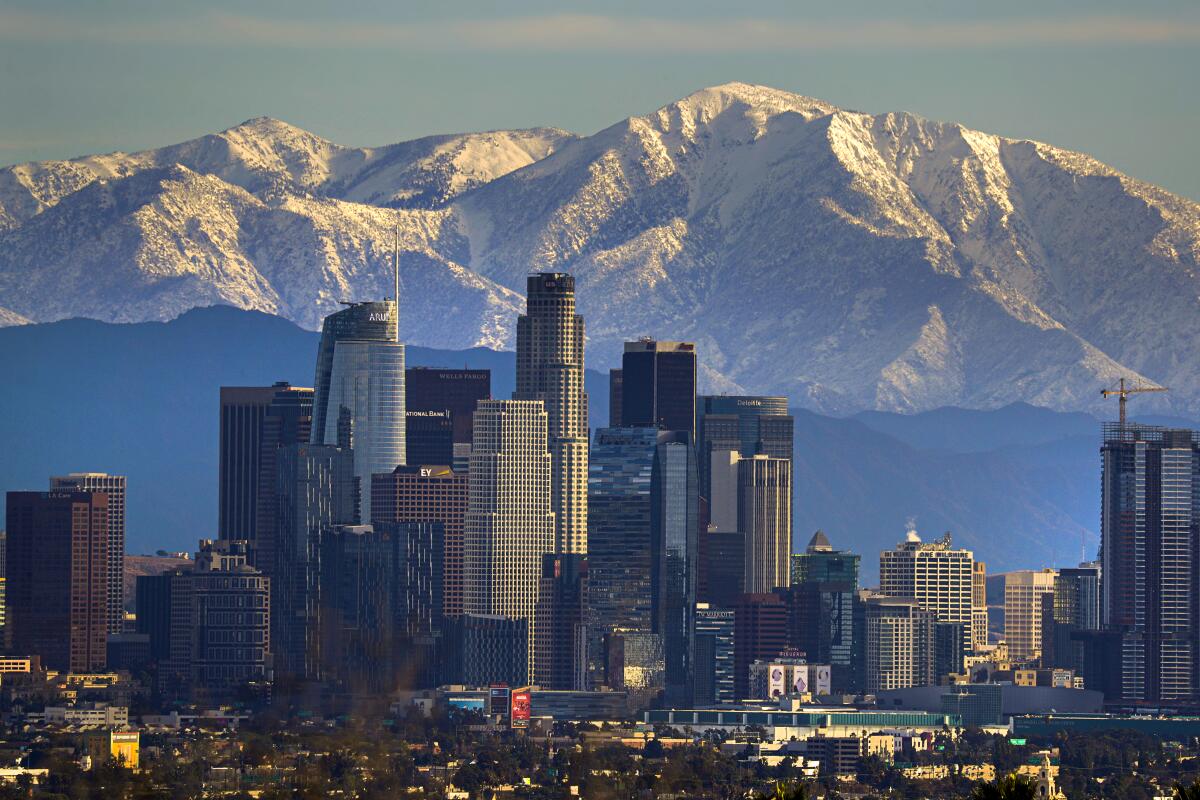
Huizar’s lawyers called Esparza and Kim, the alleged bagmen in the transaction, “admitted liars” who are “attempting to obtain leniency for their own crimes by cooperating with the government.” Esparza and Kim have each acknowledged pocketing part of the alleged $500,000 bribe.
Prosecutors claim that Huizar pressured a labor union group to withdraw its objection to the proposed Hill Street residential tower. Huizar’s lawyers said such behavior, if it occurred, would also not qualify as an official act.
“If in fact Huizar took money from one private party to ‘pressure’ another private party, that may arguably be an example of bad government or violate ethics rules,” the attorneys wrote, “but it is not a federal bribe.”
Huizar’s lawyers also argued that campaign donations he solicited from the developer of a planned 35-story tower in the Arts District were not bribes, and should be considered political speech. Huizar voted for the project in 2018, working with the builder to reduce the amount of affordable housing required by city planning commissioners.
If “this conduct is indictable as a federal crime without any allegation of a clear and unambiguous quid pro quo, every politician and major donor in the country is living at the noblesse oblige of the nearest U.S. Attorney’s office,” the attorneys wrote.
The government responded by accusing Huizar of spinning a “fanciful tale” depicting himself as a pro-business elected official victimized by ambitious prosecutors.
The prosecution doesn’t need to show that Huizar performed an official act to prove that bribery occurred, Jenkins and his fellow prosecutors wrote. Simply agreeing to perform an official act in exchange for “a thing of value” would be enough to constitute a bribe, they said.
That “agreement need not be explicit, and the public official need not specify the means that he will use to perform his end of the bargain,” prosecutors wrote.
On the Arts District project, prosecutors said campaign contributions can be considered bribes if there is a “clear and unambiguous” quid pro quo. And regarding the Hill Street high-rise, they said, Huizar ultimately would have needed to cast a vote on any challenge to the project — the type of action that would meet the Supreme Court’s definition of an official act.
More to Read
Sign up for Essential California
The most important California stories and recommendations in your inbox every morning.
You may occasionally receive promotional content from the Los Angeles Times.


